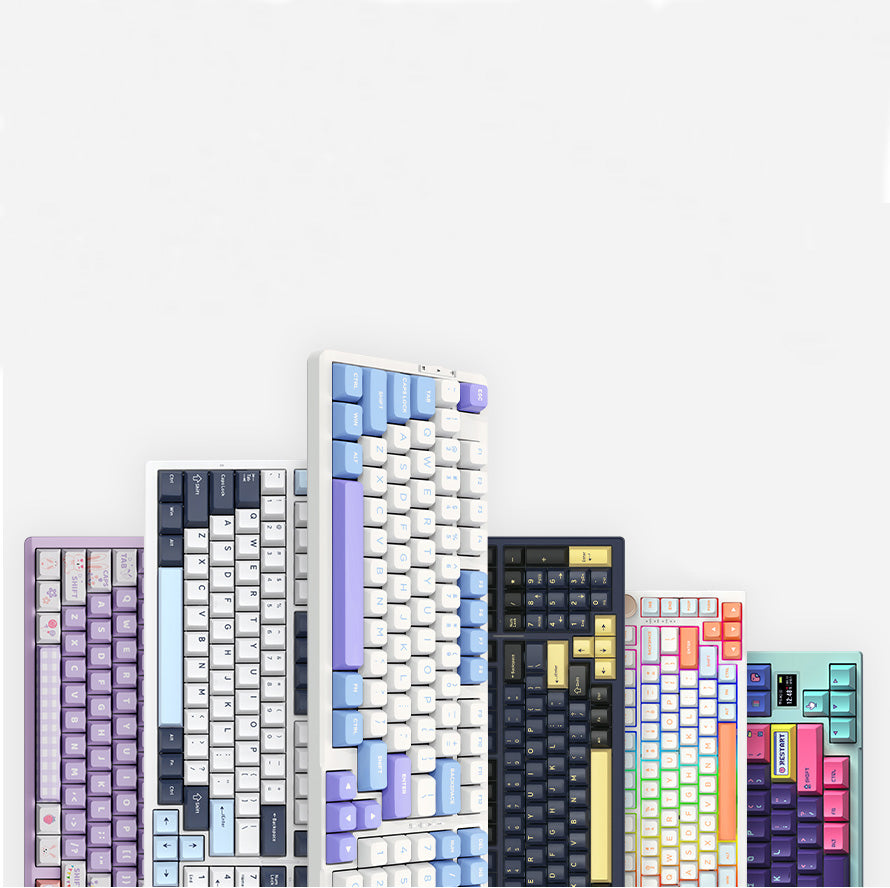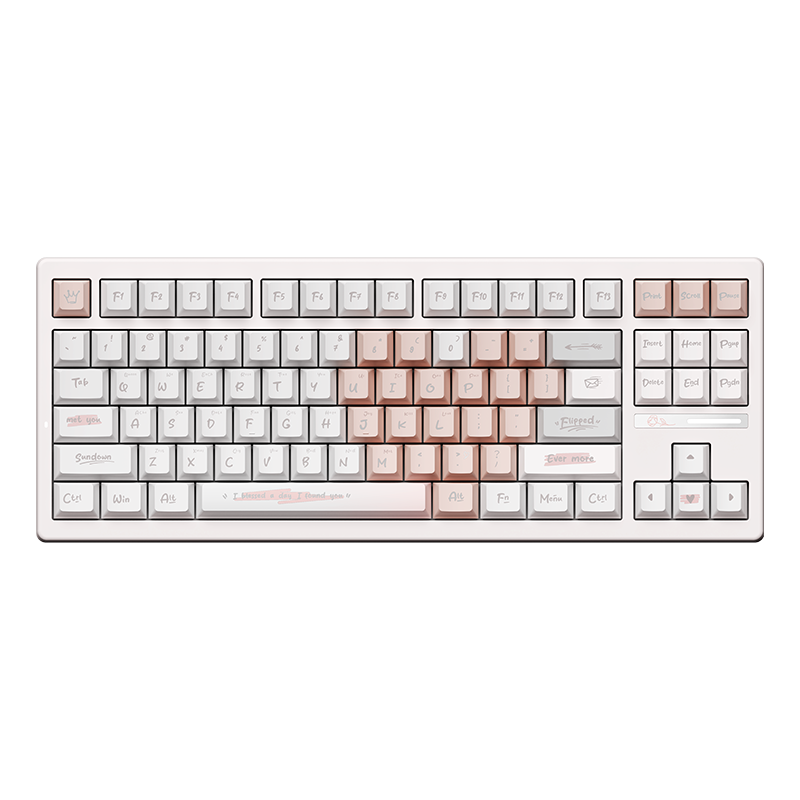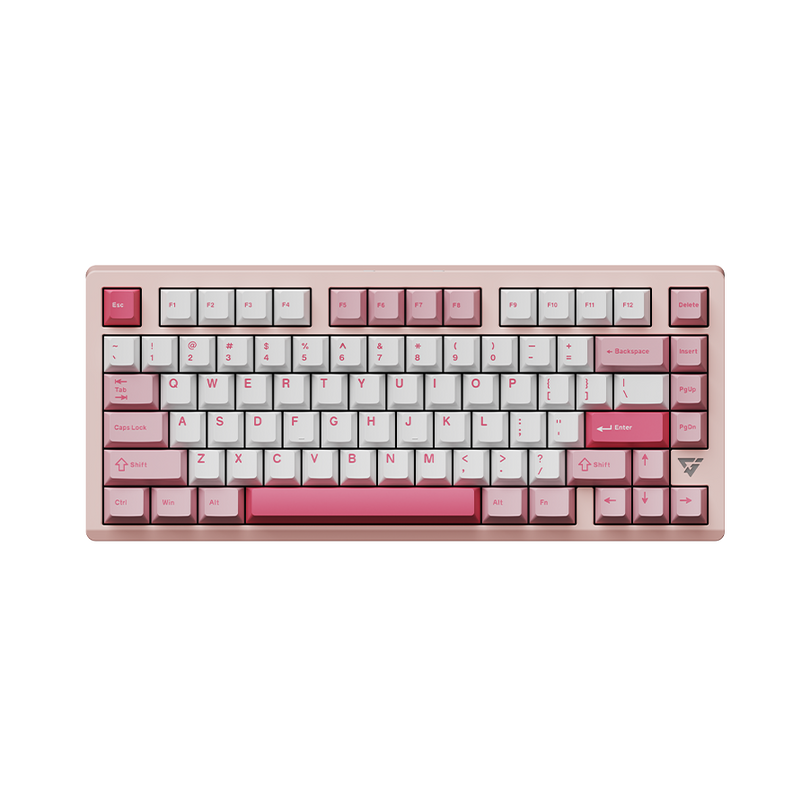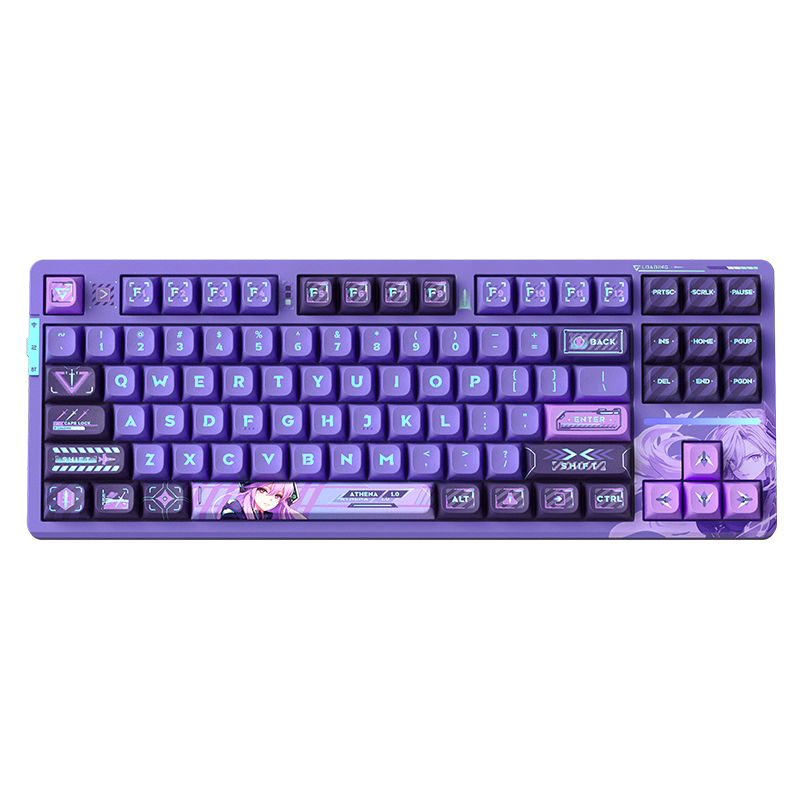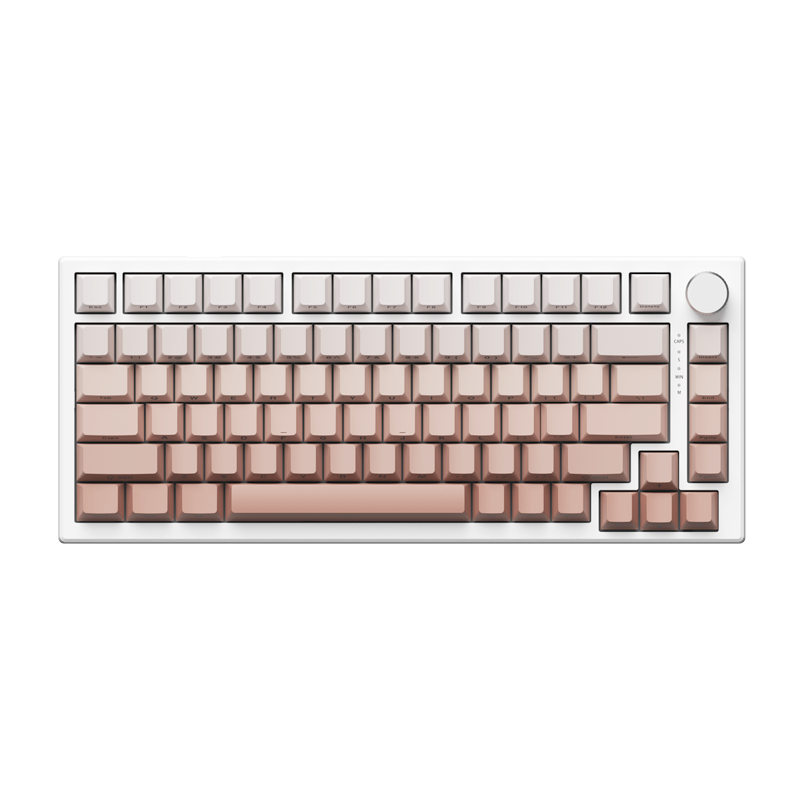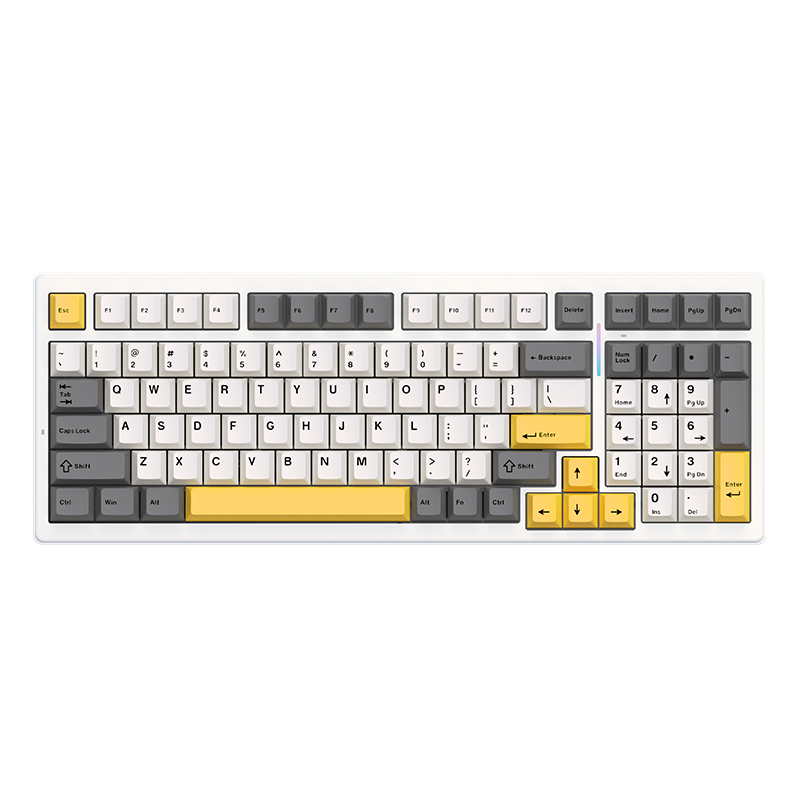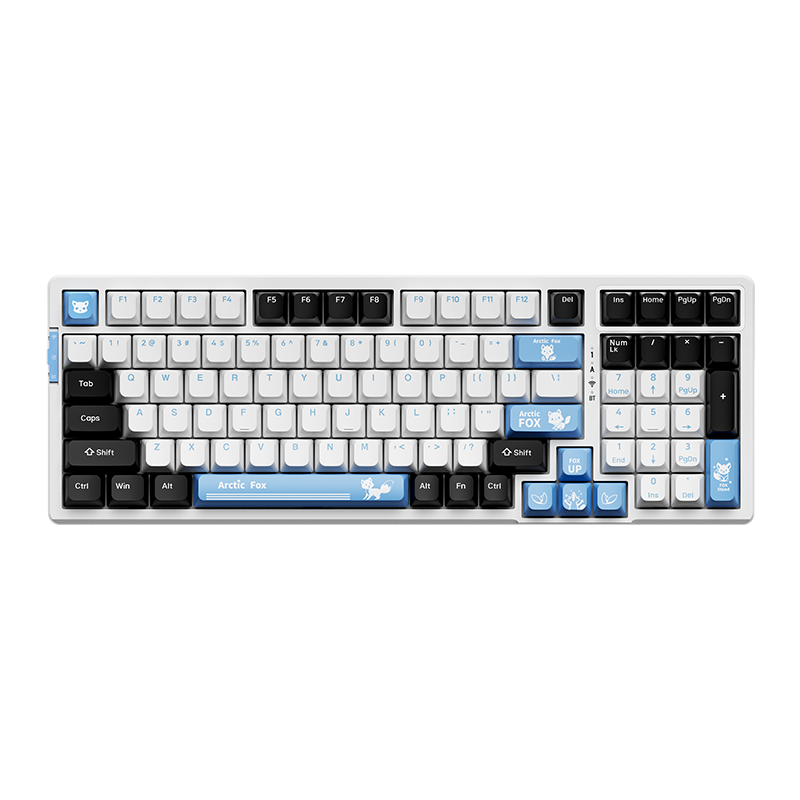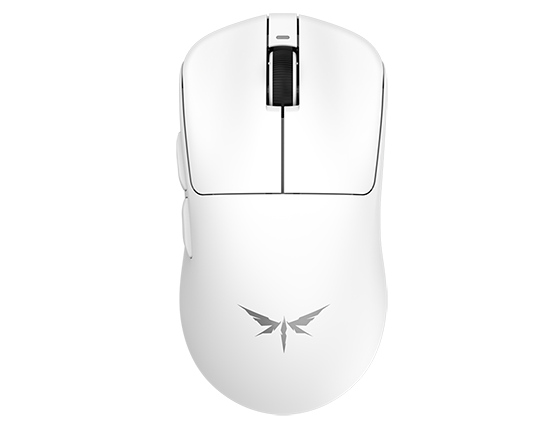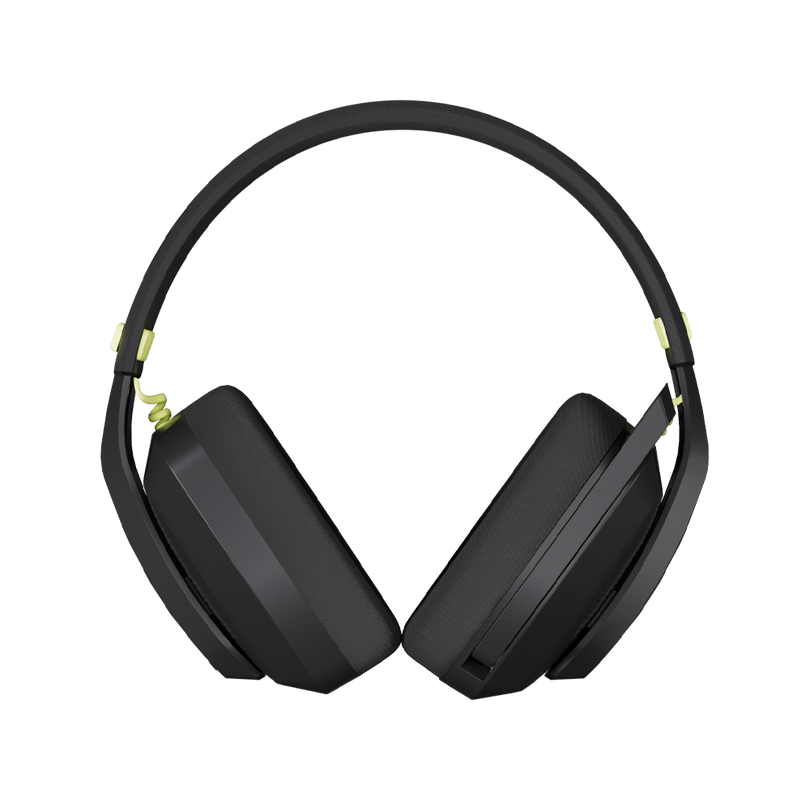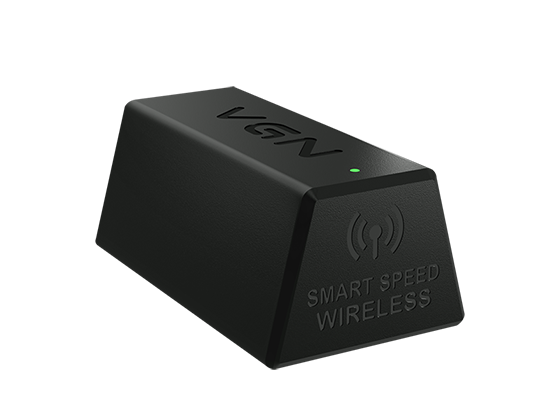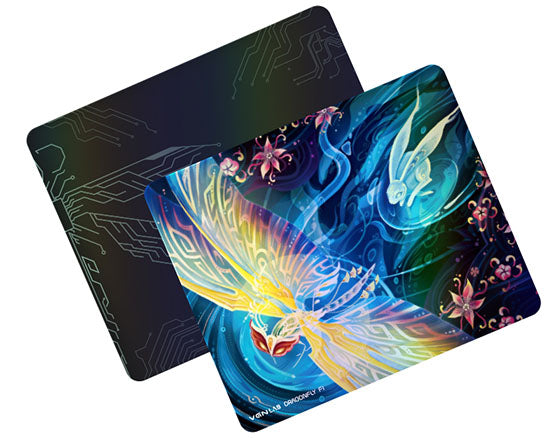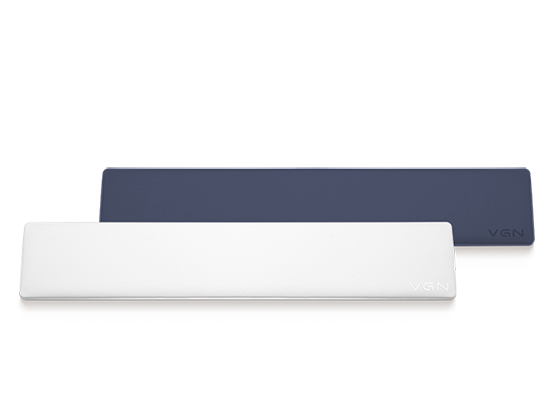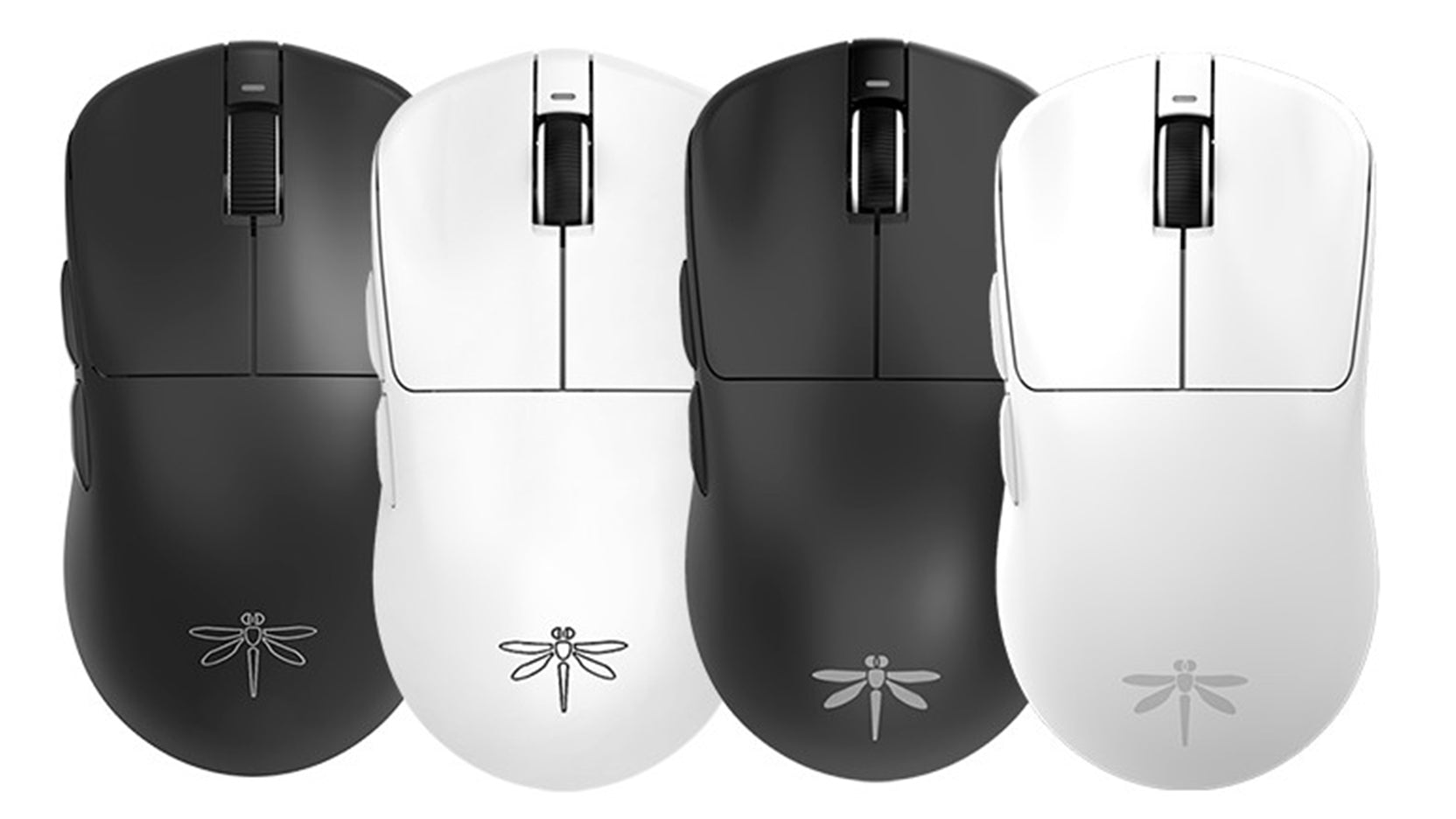In the process of purchasing or customizing a keyboard, most people tend to focus on the appearance of keycaps, whether their colors align with their aesthetic preferences. However, there are several other factors to consider, such as keycap height, manufacturing techniques, and keycap materials. These aspects can significantly impact our keyboard usage experience. In this blog, we will get to know how keycap materials make a difference in keyboard usage.
Keycaps of Different Materials
Common keycap materials on the market include ABS, PBT, and PC, while less common but unique materials for keycaps include POM, resin, aluminum alloy, and titanium alloy.
ABS keycaps
ABS (Acrylonitrile Butadiene Styrene) have several advantages, such as low cost, excellent resilience, and ease of processing. The manufacturing process for ABS keycaps is highly mature, making it one of the mainstream choices for keycap production.

These keycaps have a neat appearance, uniform texture, and provide excellent tactile feedback while also having good transparency. However, ABS material also has some shortcomings. It can soften and deform in high-temperature environments, has relatively low hardness, which may result in surface wear and fading after prolonged use. Some users may also notice a plastic odor.
However, different printing techniques can also have an impact on the user experience and durability of keycaps. For instance, the dual-color injection molding process allows for the combination of two different colors of ABS plastic on the same keycap, creating vibrant designs. In our store, both the N75 White and Black series and the V98 series utilize this two-color injection molding technique. Not only are the characters on these keycaps clear and visible, but they also offer a delicate and smooth tactile feel, with minimal fading or wear over time.
PBT keycaps
PBT (Polybutylene Terephthalate) excel in keycap materials, offering outstanding performance. They possess high heat resistance and hardness, displaying excellent resistance to hot water, alkalis, acids, and oils. In comparison to ABS material, their advantages are more pronounced, making them suitable for a wide range of keyboard users.

PBT keycaps boast a refined appearance, a unique texture, a matte finish, and highly accurate color reproduction. They are resistant to wear, yellowing, or deformation, offering exceptional durability. The keycap surface remains dry and rough, resisting the accumulation of oil, stains, or dust, ensuring long-lasting freshness. Moreover, the distinctive sound produced by PBT keycaps is appreciated by some typing and gaming enthusiasts, although they come at a slightly higher price compared to ABS material, their performance is outstanding.

Our store offers keyboard series N75Pro, X68, V98Pro, and S99, all equipped with high-quality PBT keycaps. The X68 series incorporates the latest dye-sublimation technology, while the other series utilize a dual-color injection molding process.
PC keycaps
PC (Polycarbonate) is a unique thermoplastic engineering plastic known for its transparency, lightweight, impact resistance, and durability. Most transparent keycaps are made of PC material, allowing light to evenly diffuse across the entire keycap and achieve impressive backlighting effects.

PC keycaps typically exhibit high durability, a smooth surface, and a soft touch. However, they are prone to fingerprints, oxidation-induced discoloration, and may not feel as dry or crisp.
POM keycaps
POM (Polyoxymethylene) is an extremely wear-resistant keyboard material that surpasses PBT keycaps in terms of hardness and wear resistance. However, due to higher manufacturing costs, it is rarely used by manufacturers.

POM keycaps have an exceptionally smooth surface and can maintain a dry state, providing excellent tactile feedback. They produce crisp keypress sounds and have self-lubricating properties, allowing them to preserve the appearance and texture of the keycaps for a long time. However, the choice of POM material is limited in terms of color options, making it challenging to produce light or white keycaps. As a result, black is the predominant color for POM keycaps on mechanical keyboards. POM keycaps are relatively expensive compared to other common keycap materials and are less readily available, making them less common and harder to find in stores.
Resin keycap
Resin keycaps excel in personalization, as they can be crafted in various colors, textures, and patterns, offering vivid and colorful designs with complex textures.

The tactile feel of resin keycaps is typically smooth, but it can vary depending on the type of resin used and the manufacturing process. Some resin keycaps may have a slight powdery feel, while others may be smoother. In comparison to other keycap materials, resin keycaps may have lower durability. The complex manufacturing process and the need for diversity in designs contribute to their high production costs. Most resin keycaps on the market are sold per piece, making them quite expensive in the market.
Aluminum Alloy Keycaps and Titanium Alloy Keycaps
Aluminum alloy and titanium alloy keycaps are renowned for their durability and robustness, capable of long-term use without issues like wear, fading, or deformation.

Aluminum alloy keycaps are relatively heavy, while titanium alloy keycaps are comparatively lightweight. They both exude a modern and high-end appearance, but their prices are higher compared to common keycap materials, which might not be suitable for budget-conscious users.
Conclusion
The above is the currently available keycap materials on the market. The specific choice depends on individual needs and preferences, and of course, different printing techniques also have some influence and variations on the keycap's surface, which should be taken into consideration. Understanding these basic concepts can help you better meet your own needs.
